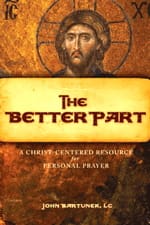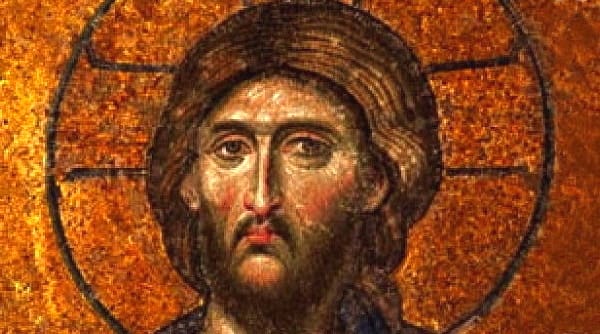“Poverty is true riches. So precious is poverty that God’s only-begotten Son came on earth in search of it. In heaven he had superabundance of all goods. Nothing was lacking there but poverty.” – St. Anthony of Padua
 Mark 10:32-45: They were on the road, going up to Jerusalem; Jesus was walking on ahead of them; they were in a daze, and those who followed were apprehensive. Once more taking the Twelve aside he began to tell them what was going to happen to him: ‘Now we are going up to Jerusalem, and the Son of Man is about to be handed over to the chief priests and the scribes. They will condemn him to death and will hand him over to the pagans, who will mock him and spit at him and scourge him and put him to death; and after three days he will rise again.’
Mark 10:32-45: They were on the road, going up to Jerusalem; Jesus was walking on ahead of them; they were in a daze, and those who followed were apprehensive. Once more taking the Twelve aside he began to tell them what was going to happen to him: ‘Now we are going up to Jerusalem, and the Son of Man is about to be handed over to the chief priests and the scribes. They will condemn him to death and will hand him over to the pagans, who will mock him and spit at him and scourge him and put him to death; and after three days he will rise again.’
James and John, the sons of Zebedee, approached him. ‘Master,’ they said to him ‘we want you to do us a favour.’ He said to them, ‘What is it you want me to do for you?’ They said to him, ‘Allow us to sit one at your right hand and the other at your left in your glory.’ ‘You do not know what you are asking,’ Jesus said to them. ‘Can you drink the cup that I must drink, or be baptised with the baptism with which I must be baptised?’ They replied, ‘We can.’ Jesus said to them, ‘The cup that I must drink you shall drink, and with the baptism with which I must be baptised you shall be baptised, but as for seats at my right hand or my left, these are not mine to grant; they belong to those to whom they have been allotted.’
When the other ten heard this they began to feel indignant with James and John, so Jesus called them to him and said to them, ‘You know that among the pagans their so-called rulers lord it over them, and their great men make their authority felt. This is not to happen among you. No; anyone who wants to become great among you must be your servant, and anyone who wants to be first among you must be slave to all. For the Son of Man himself did not come to be served but to serve, and to give his life as a ransom for many.’
Christ the Lord Few times does Jesus so clearly contrast the world’s standard with his own standard. He is the Lord, the Eternal King of Kings, and yet he puts all his power, all his wisdom, all his energy, and all his talents at the service of those he rules. He seeks nothing for himself. Most men and women of this world do just the opposite. They put all their gifts at the service of themselves, often to the point of treating those around them unjustly. Thinking that we deserve comfort and honor, we demand it whenever we can – from the waiter at the restaurant, to the telephone operator, to our siblings, to those who work under our supervision. “My will be done!” is the world’s motto; “Thy will be done!” is Christ’s. Jesus the Lord serves others; he gives his life for their sakes (especially on the cross and in the Eucharist), and he calls us to do the same.
This ethos is most eloquently displayed in Christ’s repeated prediction of his Passion. In this passage, he goes into more detail about his coming fate. In fact, he gives a play-by-play account of what will happen to him – the unjust condemnation, the physical torture, the mockery…. He knows what awaits him in Jerusalem. And yet, he freely marches towards that ignominious encounter, almost with an eager determination. This shows that everything he will suffer will be suffered willingly, not for any benefit to him, but for you and me and for all our brothers and sisters in the human race – past, present, and future. Jesus lived and died for their sake. He had no personal items on his agenda; he came to serve and to give his life for others. That’s the law that ruled this King’s conquest, and the same law ought to rule the lives of all his followers.
 Christ the Teacher Notwithstanding their selfish ambition, James and John truly want to be as close to Christ as possible. They trusted him enough to approach him with their petition. Jesus recognizes this, and he tells them a precious secret: to be close to him requires suffering with him. Jesus’ “cup” and “baptism” refer to the self-offering he makes in order to reestablish friendship between mankind and God, a self-offering which culminates in his passion and death, which he has just predicted to his apostles for the third time. To be near to him, to enter into an intimate union of hearts with him, requires joining him on the cross. To embrace Christ is to embrace the cross, to retrace in the circumstances of our own lives the steps he took on the way to Calvary. As he put it in another passage, “For whoever wishes to save his life will lose it, but whoever loses his life for my sake will find it” (Mt 16:25). He saved the world through his obedience to the Father’s will, which caused him untold suffering before he won his Kingdom. If we would be his disciples, we can expect much of the same – both the painful suffering (which even non-Christians can’t avoid in this life), and also the victory.
Christ the Teacher Notwithstanding their selfish ambition, James and John truly want to be as close to Christ as possible. They trusted him enough to approach him with their petition. Jesus recognizes this, and he tells them a precious secret: to be close to him requires suffering with him. Jesus’ “cup” and “baptism” refer to the self-offering he makes in order to reestablish friendship between mankind and God, a self-offering which culminates in his passion and death, which he has just predicted to his apostles for the third time. To be near to him, to enter into an intimate union of hearts with him, requires joining him on the cross. To embrace Christ is to embrace the cross, to retrace in the circumstances of our own lives the steps he took on the way to Calvary. As he put it in another passage, “For whoever wishes to save his life will lose it, but whoever loses his life for my sake will find it” (Mt 16:25). He saved the world through his obedience to the Father’s will, which caused him untold suffering before he won his Kingdom. If we would be his disciples, we can expect much of the same – both the painful suffering (which even non-Christians can’t avoid in this life), and also the victory.
Christ the Friend Sometimes we think that the apostles were born saints. Passages like this one disprove such an idea. First, James and John expose their selfish thirst for glory (though it is certainly mixed with a sincere desire to be as close to the Lord as possible). Then the others show their envy and jealously by becoming indignant when they hear about it. This kind of interpersonal friction and conflict, as petty as it may seem, was present among the first group of disciples, just as it is among today’s disciples, and will be among tomorrow’s. And Jesus lives right in the middle of it. How odd of God to lower himself so far that he mediates such trivial squabbles! And yet, that is the lesson of the Incarnation: Jesus wants to live in friendship with us, even if it means putting up with (and helping us overcome) our childish shenanigans. Nothing we can do will alter the love and devotion of this unique Friend.
Christ in My Life My heart is still divided, Lord. I know and I believe that a meaningful, happy life entails self-giving, even to the point of self-sacrifice, but in my daily actions I still fall into self-centeredness. I take offense so easily; I am so preoccupied with how I feel and what I want… Teach me, Lord, to follow in your footsteps, to drink your cup…
If you send me suffering, if you permit troubles in my life, it’s only because you know that they can bring me closer to you. They chisel away at my pride, my arrogance, my self-satisfied vanity – at everything that keeps me from hearing your voice and seeing your face clearly. Send me all the crosses you can, Lord, but only if you promise to help me bear them…
Teach me to walk with you, Lord. I am surrounded by a world that doesn’t believe, by a culture that seeks happiness in sin. Keep me on your path, and make me your good ambassador to others who are searching…
PS: This is just one of 303 units of Fr. John’s fantastic book The Better Part. To learn more about The Better Part or to purchase in print, Kindle or iPhone editions, click here. Also, please help us get these resources to people who do not have the funds or ability to acquire them by clicking here.
+
Art for this post on Mark 10:32-45: Cover of The Better Part used with permission. Detail of Call of the Sons of Zebedee, Marco Basaiti, 1510, Picture by M0tty, PD-US author’s life plus 100 years or less, Wikimedia Commons.


